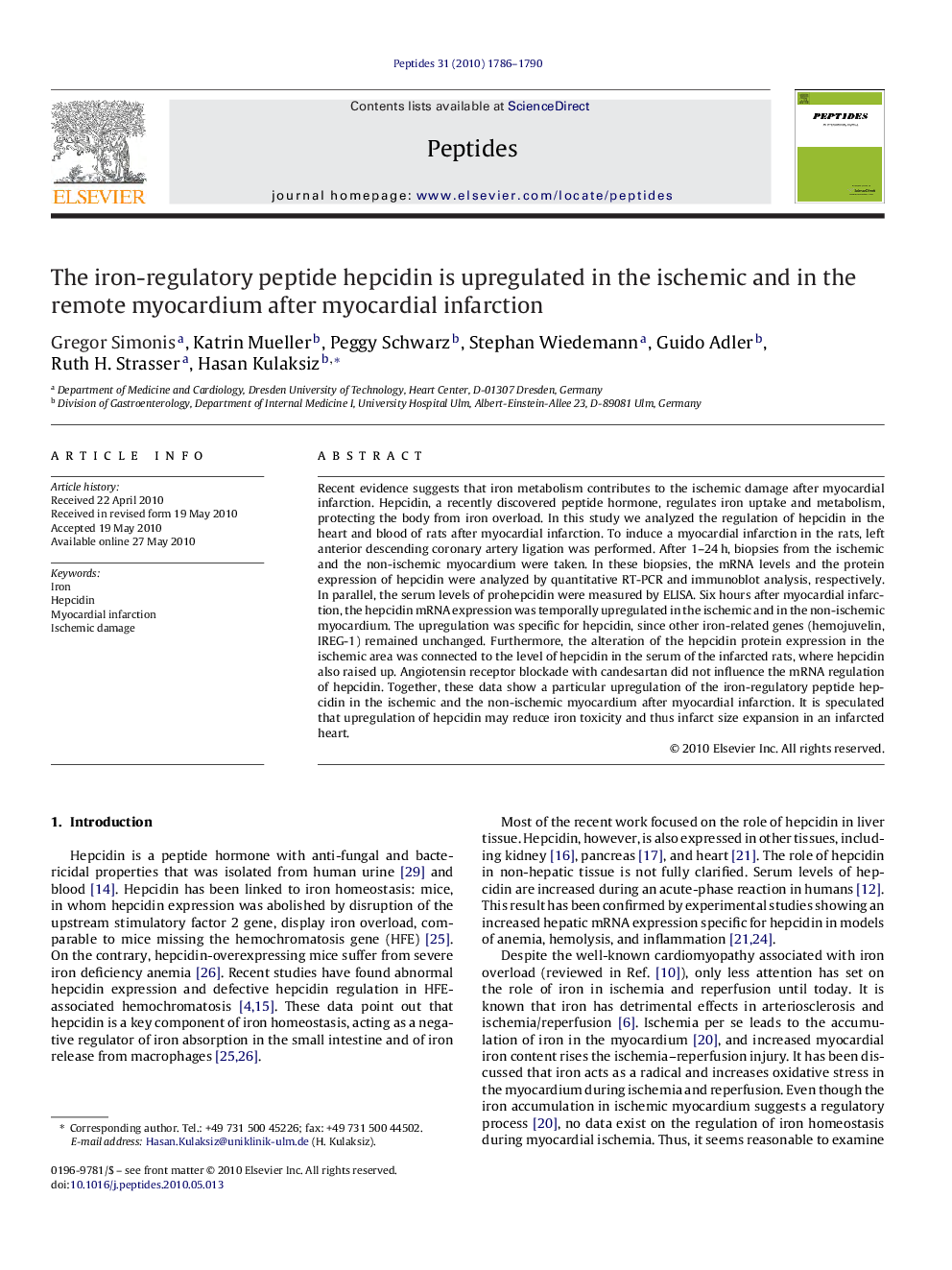| Article ID | Journal | Published Year | Pages | File Type |
|---|---|---|---|---|
| 2006833 | Peptides | 2010 | 5 Pages |
Recent evidence suggests that iron metabolism contributes to the ischemic damage after myocardial infarction. Hepcidin, a recently discovered peptide hormone, regulates iron uptake and metabolism, protecting the body from iron overload. In this study we analyzed the regulation of hepcidin in the heart and blood of rats after myocardial infarction. To induce a myocardial infarction in the rats, left anterior descending coronary artery ligation was performed. After 1–24 h, biopsies from the ischemic and the non-ischemic myocardium were taken. In these biopsies, the mRNA levels and the protein expression of hepcidin were analyzed by quantitative RT-PCR and immunoblot analysis, respectively. In parallel, the serum levels of prohepcidin were measured by ELISA. Six hours after myocardial infarction, the hepcidin mRNA expression was temporally upregulated in the ischemic and in the non-ischemic myocardium. The upregulation was specific for hepcidin, since other iron-related genes (hemojuvelin, IREG-1) remained unchanged. Furthermore, the alteration of the hepcidin protein expression in the ischemic area was connected to the level of hepcidin in the serum of the infarcted rats, where hepcidin also raised up. Angiotensin receptor blockade with candesartan did not influence the mRNA regulation of hepcidin. Together, these data show a particular upregulation of the iron-regulatory peptide hepcidin in the ischemic and the non-ischemic myocardium after myocardial infarction. It is speculated that upregulation of hepcidin may reduce iron toxicity and thus infarct size expansion in an infarcted heart.
